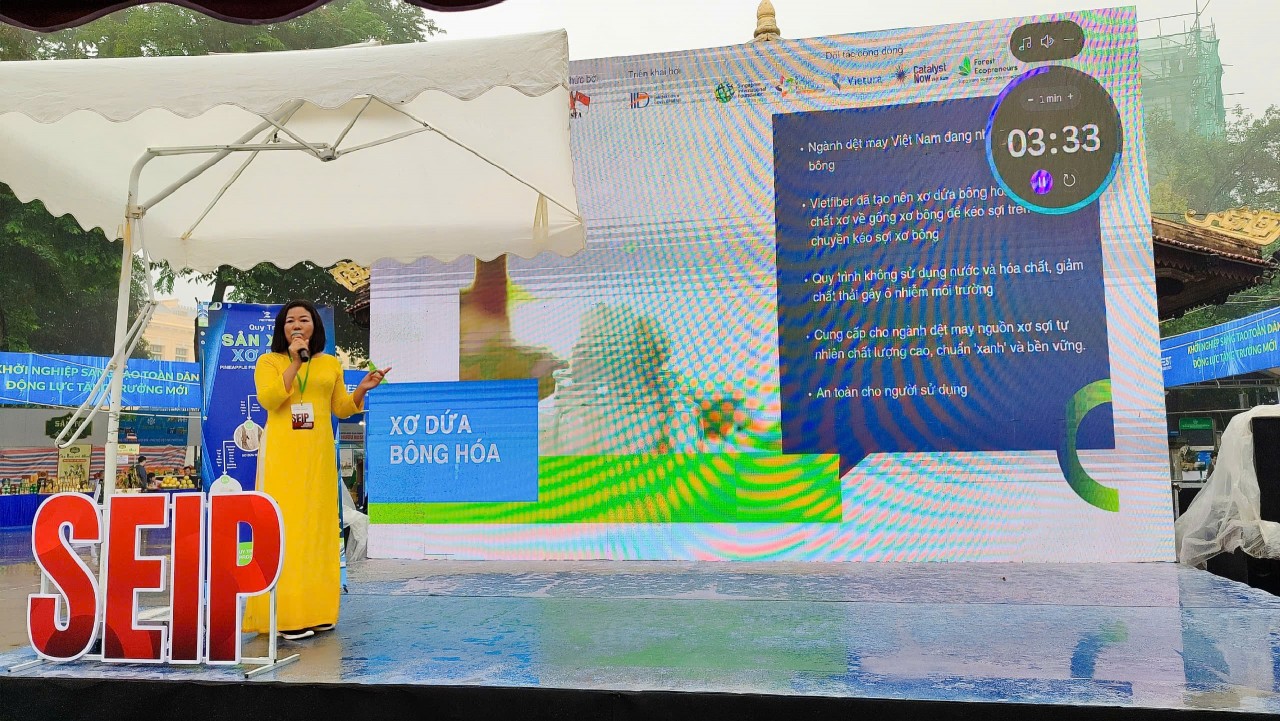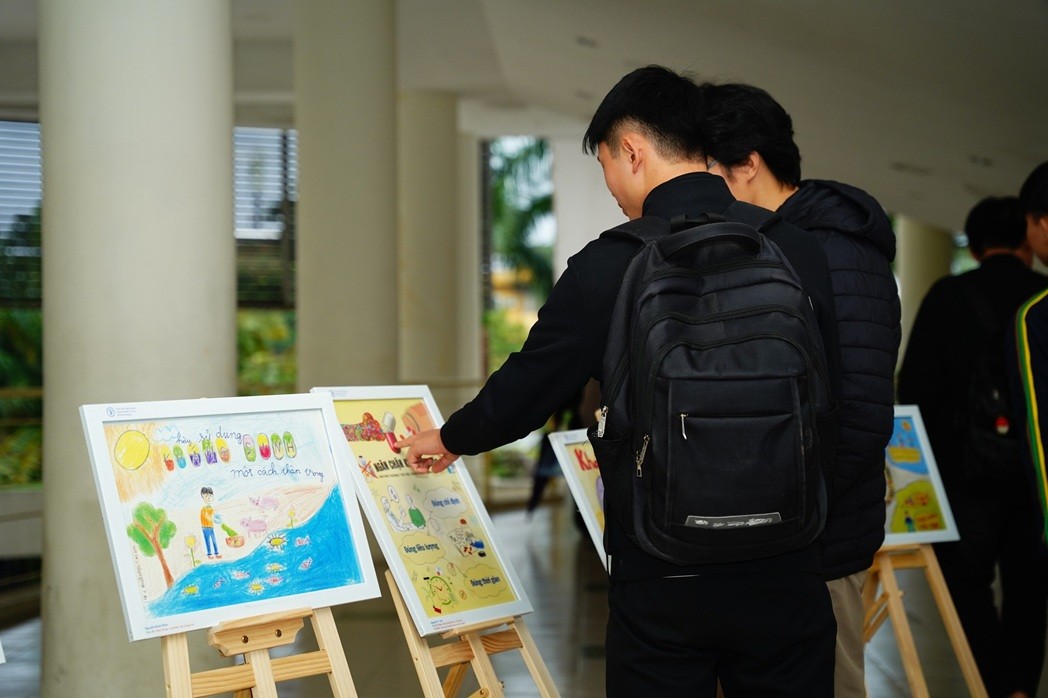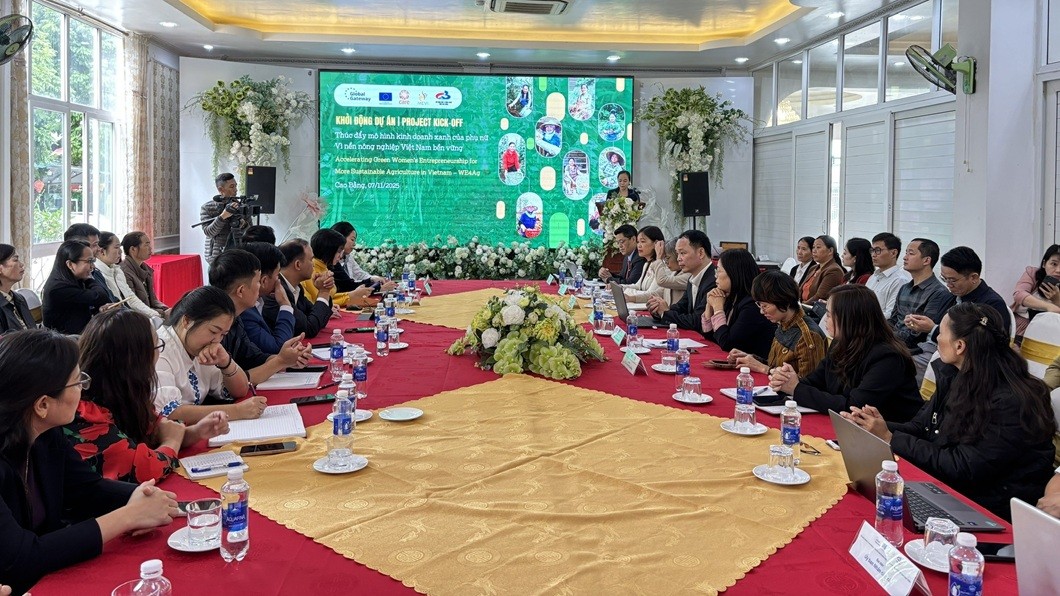Digital Transformation in Agriculture: Key to Green and Sustainable Development
| Fostering Vietnam-RoK Youth Ties via Exchange and Innovation in Agriculture | |
| Australia and Vietnam Cooperate on Research in Digital and Green Agriculture |
Nguyen Minh Tien, Director of the Center for Agricultural Trade Promotion, stated that Vietnamese agriculture is facing unprecedented challenges - from climate change to increasing pressure from green consumption markets. Therefore, digital transformation and innovation are an inevitable path for agriculture to become more efficient, transparent, and sustainable.
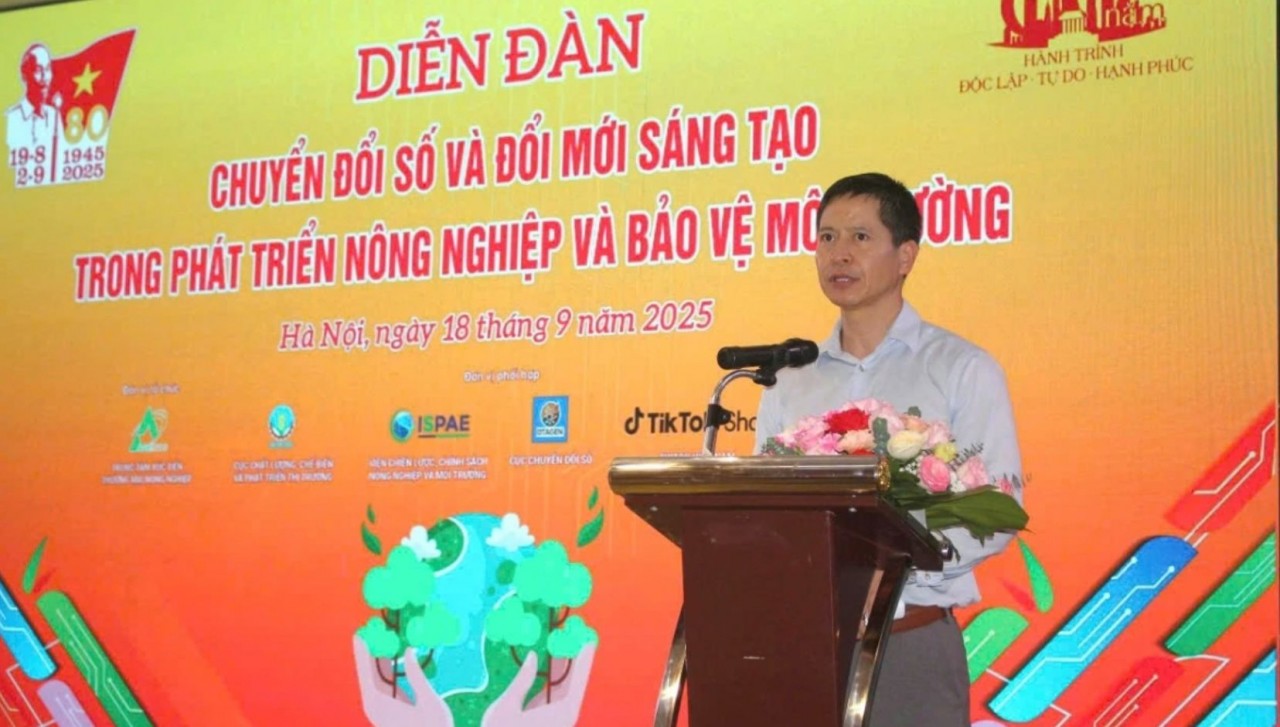 |
| Nguyen Minh Tien, Director of the Center for Agricultural Trade Promotion. (Photo: VOV.VN) |
According to Nguyen Kim Phuc, Deputy Director of the Department of Digital Transformation under the Ministry of Agriculture and Environment, agriculture is one of eight sectors prioritized for digital transformation under Decision 749/QD-TTg by the government. The application of advanced technologies such as artificial intelligence, big data, the Internet of Things, blockchain, and satellite monitoring can help increase agricultural productivity by up to 30%, cut labor costs by half, and save up to 40% of water, fertilizers, and pesticides.
According to the Department of Digital Transformation, a 2021 World Bank report also indicated that the use of digital technology in agriculture could raise productivity by 30%, reduce labor costs by 50%, and save about 40% of irrigation water, pesticides, and fertilizers - a very significant set of benefits.
However, digital transformation still faces many limitations and is mainly happening among large enterprises. Telecommunications infrastructure and equipment in rural areas remain underdeveloped, and the workforce lacks digital skills. Industry data is fragmented and poorly integrated.
From a macroeconomic perspective, Pham Duy Khanh, Director of the Center for Rural Development under the Institute of Agricultural and Environmental Policy and Strategy, said Vietnam’s digital economy holds great potential. In 2024, the digital economy contributed more than 18% of GDP, growing three times faster than overall GDP. Retail e-commerce reached about USD 25 billion. This creates opportunities for agriculture to expand online trade, implement traceability systems, build brands, and access international markets.
Many digital transformation models have already demonstrated clear results. In Binh Thuan, a project between the Ministry of Agriculture and Environment and UNDP since 2023 has helped reduce dragon fruit carbon emissions by up to 68% and cut energy consumption by 50% through the use of solar power, LED lights, and traceability software. In Dong Thap, the Smart Village model enables digital monitoring of land, irrigation, cultivation, livestock, harvesting, and processing, thereby minimizing losses and risks while improving production efficiency.
In Yen Hoa commune (Yen Mo district, Ninh Binh), all 10 out of 10 villages have internet coverage, and 70% of residents use smartphones. OCOP products are sold on the Postmart platform, and QR code payment is widespread.
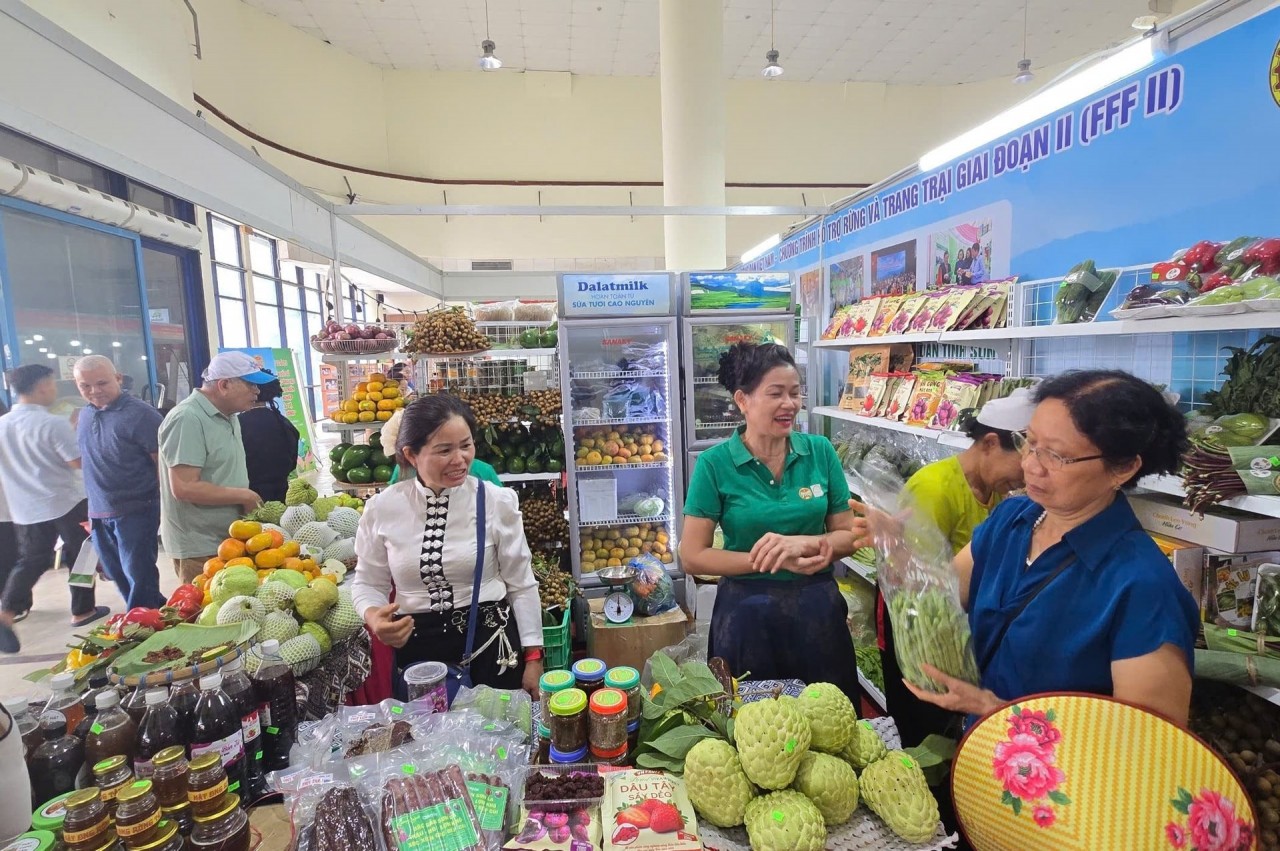 |
| Green and clean products supported by the Forest and Farm Facility Program. (Photo: moitruong.net.vn) |
Nevertheless, according to Pham Duy Khanh, a major challenge today is the “mismatch” between technology and real-world practices. Technology developers often lack a deep understanding of agricultural specifics, while farmers lack digital skills, leading to many technological products being ill-suited for practical production needs.
To address this, Khanh proposed the creation of a national agricultural data bank to ensure consistency and interoperability.
At the same time, it is necessary to raise awareness and provide digital skills training for farmers through pilot models, showcasing successful examples so that farmers can experience them firsthand before scaling up.
Experts also emphasized that building smart villages must rely on three pillars: digital government, digital economy, and digital society. Digital government focuses on online public services and management of material origin codes. Digital economy promotes e-commerce and cashless payment. Digital society enables rural residents to access healthcare, education, culture, and environmental services through digital platforms. This comprehensive approach links technology with daily life and fosters a sustainable digital rural ecosystem.
Nguyen Minh Tien also stressed that if a dedicated digital trade promotion platform for agriculture and the environment is not developed soon, Vietnam risks falling behind, as the current fragmented and data-poor traditional trade promotion system can no longer meet new requirements.
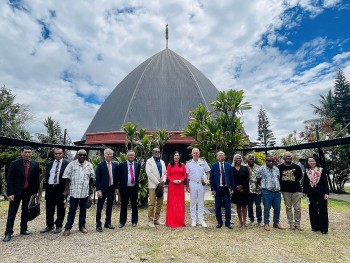 | Vietnam Ready to Share Experiences with New Caledonia in Tourism and Agriculture From December 13-15, 2024, a working delegation from the Ministry of Foreign Affairs and the State Committee for Overseas Vietnamese, led by Deputy Minister Le ... |
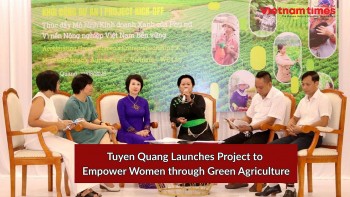 | Tuyen Quang Launches Project to Empower Women through Green Agriculture On August 22, the Tuyen Quang Provincial Women’s Union, in collaboration with CARE International in Vietnam and with the support of the European Union, organized ... |





